In Focus This Week
Bookmark It
Dubuque Co, IA auditor’s office builds unique partnership for voter outreach
By M. Mindy Moretti
electionline.org
Voter outreach is one of the core functions of an elections office. And it’s not just about getting out the vote on Election Day. It’s reminding voters about checking registration, getting up-to-date absentee ballot information, learning mail-in voting deadlines, and finding their polling location.

 Voters require this information and getting it to them in an easily understood package is paramount for them to have the best voting experience possible.
Voters require this information and getting it to them in an easily understood package is paramount for them to have the best voting experience possible.
To reach, update, and educate voters where they are, the Dubuque County, Iowa Elections office partnered with the Dubuque County Library system and the Carnegie-Stout Public Library in the City of Dubuque to distribute Your Vote Matters bookmarks.
“Former Auditor Kevin Dragotto and I were at a conference, and there was a speaker who was presenting on disability rights,” explained Jenny Hillary, CERA, deputy auditor, commissioner of elections in Dubuque County. “They had created a bookmark to distribute with information on disability rights. Auditor Dragotto and I pretty much looked at each other simultaneously and stated that we should create a bookmark, but have voting information on it. Auditor Dragotto stated we should go a step further and distribute them to the libraries.”
According to Hillary, annual visits to libraries in the U.S. averaged 1.2 billion visits over that last ten years. An American Library Association report issued in November 2023 found that Gen Z and Millennials are visiting libraries at higher rates compared to older generations.
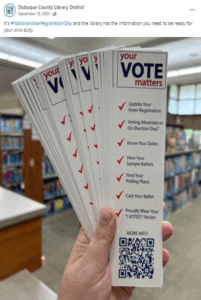 “This presents a unique opportunity to expand our reach to an underperforming segment of the electorate,” Hillary said. She said the libraries in Dubuque were immediately onboard with the idea.
“This presents a unique opportunity to expand our reach to an underperforming segment of the electorate,” Hillary said. She said the libraries in Dubuque were immediately onboard with the idea.
Beginning in 2023, whenever someone checked out a book at one of the libraries, a bookmark was placed inside for the patron to have. Additional bookmarks were available as well.
Each two-sided bookmark had a checklist for voters to help them prepare for election day. Included on the checklist side is a QR code to take the voter to a more detailed website. Local contact information was clearly listed on the opposite side including the county elections website, email, and social media addresses.
In addition to distributing the bookmarks, Hillary said the libraries also created social media posts to promote the bookmarks which led to great voter reach.
According to the county’s Election Center Professional Practice Paper submission, the feedback on the bookmarks was so positive that they intend to run this program annually in the months leading up to election day.
“Website traffic increased, social media interaction increased, and we experienced positive references to our bookmarks,” Hillary wrote.
The bookmarks were $112 per 1,000 bookmarks and that included two colors and printed on both sides. The design work was completed in-house, using standard design software that most offices would already have.
“It truly is a minimal cost to implement. You can use a simple computer program to produce them or find a printing vendor with a template for a bookmark. It is a fun way to get election information and your contact information out to the public,” Hillary said.
The county is planning to bring this back in 2026 and since they already have two bookmark styles out now, they’d love to create a new design for 2026 and possibly expand distribution like local bookstores, Hillary said.
(Dubuque County, Iowa received the Stars & Stripes Award – Recognizing Outstanding Partnerships at the 2024 Election Center Annual Conference.)
electionline Daily News Email
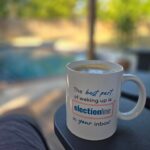 What’s the best part of waking up? electionline Daily News in your inbox of course so be sure to sign up for your daily dose.
What’s the best part of waking up? electionline Daily News in your inbox of course so be sure to sign up for your daily dose.
Each morning you’ll receive the top headlines of the day, plus a listing of states featured in that day’s news round up.
To sign up, simply visit our site and provide us with your email and you’ll begin receiving the news in your inbox each morning.
We Google so you don’t have to!
The Election Center Turns 40
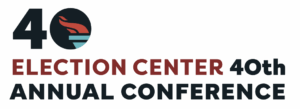 The year was 1985. The top song for the year was “Careless Whisper” by Wham, “Back to the Future” was the number one grossing movie and Live Aid was the event of the year.
The year was 1985. The top song for the year was “Careless Whisper” by Wham, “Back to the Future” was the number one grossing movie and Live Aid was the event of the year.
Also that year, elections officials from all over the country gathered in New Orleans for Election Center’s first Annual Conference.
This year, as Election Center members gather in Salt Lake City for its 40th Annual Conference, we want to highlight some of those past gatherings. If you have photos from any of our past conferences that you’d like to share, please email them to press-media@electioncenter.org or you can post them on socials and tag #ElectionCenter40 –we understand this is going to require some scanning for older photos!
See you in Salt Lake!
Election News This Week
 Federal Update: There was more news this week about the Department of Justice’s push to gain voter data from the states. Several states, including Maryland and Utah have responded to the DOJ request by providing them with the steps necessary to obtain the publicly available information. While the DOJ has already reached out to at least 19 states, the National Association of Secretaries of State (NASS) said that after states began receiving letters, its staff reached out to the department for additional information and context. “DOJ staff told NASS staff that all states would be contacted eventually on NVRA and HAVA matters. We passed along this information to members,” association spokesperson Maria Benson wrote in a statement to Stateline. In at least two instances in California, the DOJ has requested information about the removal of non-citizens from voter registration lists in Los Angeles and San Francisco. NBC News has a report on states’ inability to rely on the Department of Homeland Security for election security. Three state election heads and a former CISA official who spoke to NBC News said it’s clear the agency is no longer as effective in protecting U.S. elections. “You’re hanging states out to dry, basically, to let them fend for themselves,” said Pam Smith, the president of Verified Voting, a nonpartisan nonprofit devoted to providing election officials with resources for their jobs.
Federal Update: There was more news this week about the Department of Justice’s push to gain voter data from the states. Several states, including Maryland and Utah have responded to the DOJ request by providing them with the steps necessary to obtain the publicly available information. While the DOJ has already reached out to at least 19 states, the National Association of Secretaries of State (NASS) said that after states began receiving letters, its staff reached out to the department for additional information and context. “DOJ staff told NASS staff that all states would be contacted eventually on NVRA and HAVA matters. We passed along this information to members,” association spokesperson Maria Benson wrote in a statement to Stateline. In at least two instances in California, the DOJ has requested information about the removal of non-citizens from voter registration lists in Los Angeles and San Francisco. NBC News has a report on states’ inability to rely on the Department of Homeland Security for election security. Three state election heads and a former CISA official who spoke to NBC News said it’s clear the agency is no longer as effective in protecting U.S. elections. “You’re hanging states out to dry, basically, to let them fend for themselves,” said Pam Smith, the president of Verified Voting, a nonpartisan nonprofit devoted to providing election officials with resources for their jobs.
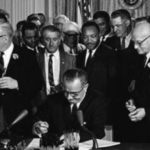 The Voting Rights Act at 60: This week marked the 60th anniversary of the signing of the Voting Rights Act. Several media outlets, including NPR, USAToday, The Associated Press, The 19th and more took a look at the law that promised millions of Americans the power to vote and is now facing numerous challenges. Voting rights advocates, experts and lawmakers are marking the Aug. 6 anniversary with panels and programs. They have also pressed Congress to support federal voting rights legislation named after the late civil rights icon Georgia Rep. John Lewis. This AP story looks at what led up to the passage of the law including Bloody Sunday in Selma Alabama. This AP story takes a good look at just what the law does and some of the existing court cases that could unravel it. “I never thought that 50 years later, we’d still be fighting,” said said Hank Sanders, a former state senator who helped organize the annual Bloody Sunday commemoration in Selma, “not just to expand voting rights but to be able to maintain some of the rights that we had already obtained.” There were also local stories from Alabama, California, Georgia, Indiana, Louisiana, Mississippi, and Texas.
The Voting Rights Act at 60: This week marked the 60th anniversary of the signing of the Voting Rights Act. Several media outlets, including NPR, USAToday, The Associated Press, The 19th and more took a look at the law that promised millions of Americans the power to vote and is now facing numerous challenges. Voting rights advocates, experts and lawmakers are marking the Aug. 6 anniversary with panels and programs. They have also pressed Congress to support federal voting rights legislation named after the late civil rights icon Georgia Rep. John Lewis. This AP story looks at what led up to the passage of the law including Bloody Sunday in Selma Alabama. This AP story takes a good look at just what the law does and some of the existing court cases that could unravel it. “I never thought that 50 years later, we’d still be fighting,” said said Hank Sanders, a former state senator who helped organize the annual Bloody Sunday commemoration in Selma, “not just to expand voting rights but to be able to maintain some of the rights that we had already obtained.” There were also local stories from Alabama, California, Georgia, Indiana, Louisiana, Mississippi, and Texas.
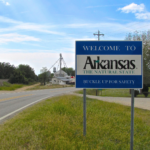 News From Arkansas: The Arkansas Board of Elections Commissioners met this week and took action against election officials in two counties. The Board voted to decertify two Phillips County election workers, one of whom did not show up to the hearing, and issue them letters of reprimand for failing to fulfill their duties. The board decertified Phillips County Election Commissioner John Dalencourt for four years and poll worker Dennis Jasper for 14 years after hearing testimony from others who worked at the voting site in the small town of Elaine during the November 2024 elections. Delancourt faced sanctions for not being present at the polling place at 6:45 a.m. on Election Day, which was Nov. 4, at the direction of the state board after a similar issue in 2022. The board also held Dalencourt responsible for the polling place not being open at 7:30 a.m. as required. The board initially considered decertifying Dalencourt for 14 years but reduced the punishment. The Board also issued letters of reprimand to three election officials of the Searcy County Election Commission but declined to decertify them from working on future elections after several hours of testimony and debate this week. Attorney Clint Lancaster represented all three members of the Searcy County Election Commission in their challenge of the state board’s June decision to decertify Chairwoman Laura Gross and commissioners L.C. Ratchford and Ken Weekley for 14 years over four allegations of violating state election law in November 2024. The state board sanctioned the three commissioners on two of the four allegations, issuing one letter of reprimand per charge and per commissioner. The first was “accepting something of value from an unapproved source” in the course of their duties. The county’s election officials used audiovisual equipment — television monitors, cameras and scanners — provided by the Arkansas Voter Integrity Initiative to help observers monitor the vote counting. The second allegation was that the commission failed to post a full list of election workers in a public space in the county clerk’s office at least eight days before Election Day.
News From Arkansas: The Arkansas Board of Elections Commissioners met this week and took action against election officials in two counties. The Board voted to decertify two Phillips County election workers, one of whom did not show up to the hearing, and issue them letters of reprimand for failing to fulfill their duties. The board decertified Phillips County Election Commissioner John Dalencourt for four years and poll worker Dennis Jasper for 14 years after hearing testimony from others who worked at the voting site in the small town of Elaine during the November 2024 elections. Delancourt faced sanctions for not being present at the polling place at 6:45 a.m. on Election Day, which was Nov. 4, at the direction of the state board after a similar issue in 2022. The board also held Dalencourt responsible for the polling place not being open at 7:30 a.m. as required. The board initially considered decertifying Dalencourt for 14 years but reduced the punishment. The Board also issued letters of reprimand to three election officials of the Searcy County Election Commission but declined to decertify them from working on future elections after several hours of testimony and debate this week. Attorney Clint Lancaster represented all three members of the Searcy County Election Commission in their challenge of the state board’s June decision to decertify Chairwoman Laura Gross and commissioners L.C. Ratchford and Ken Weekley for 14 years over four allegations of violating state election law in November 2024. The state board sanctioned the three commissioners on two of the four allegations, issuing one letter of reprimand per charge and per commissioner. The first was “accepting something of value from an unapproved source” in the course of their duties. The county’s election officials used audiovisual equipment — television monitors, cameras and scanners — provided by the Arkansas Voter Integrity Initiative to help observers monitor the vote counting. The second allegation was that the commission failed to post a full list of election workers in a public space in the county clerk’s office at least eight days before Election Day.
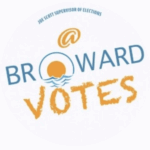 Office Visit: Latin American election officials got a look at how elections are run in Florida and the United States, thanks to a tour offered by the Broward County Supervisor of Elections. The officials — about 10 leaders from Mexico, Honduras, Guatemala, Colombia, Ecuador, Bolivia, Brazil, Paraguay, Chile and Argentina — asked Broward Supervisor of Elections Joe Scott about Florida’s voting rules, including how voting works for snowbirds who live in both the state and New York. The visitors walked around the elections office’s new headquarters in northern Fort Lauderdale. Scott said as people from abroad learn about Broward’s election efforts, “it means a lot that some of the innovative approaches that we’ve taken over the last few years are getting recognition even beyond the United States.” The visitors’ tour was coordinated by the Argentinian organization, Transparencia Electoral, in collaboration with the Florida International University. Jesús Delgado Valery, the program director for the organization, said the group has led more than 60 electoral observation missions, including one tour in Los Angeles — and yet Broward was a standout. “It’s not that regular that they have these kinds of offices and technology,” Valery said. Scott said the building was in the process of being planned when protesters rioted at the U.S. Capitol building on Jan. 6, 2021. “It really made us think about the fact that people might try to storm our building,” Scott said. “They might even feel like they have the patriotic duty to come in and disrupt what we’re doing.” Ivan Castro, the Broward Supervisor of Elections’ communications manager, said one benefit to welcoming the international election officials was the chance to understand how elections are run in centralized systems, in contrast to the decentralized structure the U.S operates.
Office Visit: Latin American election officials got a look at how elections are run in Florida and the United States, thanks to a tour offered by the Broward County Supervisor of Elections. The officials — about 10 leaders from Mexico, Honduras, Guatemala, Colombia, Ecuador, Bolivia, Brazil, Paraguay, Chile and Argentina — asked Broward Supervisor of Elections Joe Scott about Florida’s voting rules, including how voting works for snowbirds who live in both the state and New York. The visitors walked around the elections office’s new headquarters in northern Fort Lauderdale. Scott said as people from abroad learn about Broward’s election efforts, “it means a lot that some of the innovative approaches that we’ve taken over the last few years are getting recognition even beyond the United States.” The visitors’ tour was coordinated by the Argentinian organization, Transparencia Electoral, in collaboration with the Florida International University. Jesús Delgado Valery, the program director for the organization, said the group has led more than 60 electoral observation missions, including one tour in Los Angeles — and yet Broward was a standout. “It’s not that regular that they have these kinds of offices and technology,” Valery said. Scott said the building was in the process of being planned when protesters rioted at the U.S. Capitol building on Jan. 6, 2021. “It really made us think about the fact that people might try to storm our building,” Scott said. “They might even feel like they have the patriotic duty to come in and disrupt what we’re doing.” Ivan Castro, the Broward Supervisor of Elections’ communications manager, said one benefit to welcoming the international election officials was the chance to understand how elections are run in centralized systems, in contrast to the decentralized structure the U.S operates.
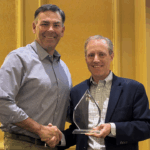 News From NASS: The members of the National Association of Secretaries of State (NASS) have selected the Mississippi Secretary of State’s Office as the 2025 IDEAS (Innovation, Dedication, Excellence and Achievement in Service) Award recipient for their “SOS Student Ambassador” program. This program is a collaborative initiative involving high school seniors, the Secretary of State’s Office, and Secretary of State Michael Watson. Students who are passionate about leadership and state government gain the tools necessary to return to their schools as advocates for voter education and awareness. They frequently engage with representatives from the Secretary of State’s Office, the Mississippi State Legislature, as well as other prominent local, state, and national leaders. “The SOS Student Ambassador program is one of the best things we have started in Mississippi. Mentoring and investing in Mississippi’s future leaders will outlive any policy or legislative initiative. I look forward to seeing these students lead our state and nation,” said Watson.
News From NASS: The members of the National Association of Secretaries of State (NASS) have selected the Mississippi Secretary of State’s Office as the 2025 IDEAS (Innovation, Dedication, Excellence and Achievement in Service) Award recipient for their “SOS Student Ambassador” program. This program is a collaborative initiative involving high school seniors, the Secretary of State’s Office, and Secretary of State Michael Watson. Students who are passionate about leadership and state government gain the tools necessary to return to their schools as advocates for voter education and awareness. They frequently engage with representatives from the Secretary of State’s Office, the Mississippi State Legislature, as well as other prominent local, state, and national leaders. “The SOS Student Ambassador program is one of the best things we have started in Mississippi. Mentoring and investing in Mississippi’s future leaders will outlive any policy or legislative initiative. I look forward to seeing these students lead our state and nation,” said Watson.
 Podcast News: In the latest episode of The Voting Booth from the American Enterprise Institute, co-hosts John Fortier and Don Palmer are joined by Adam Kincaid, President and Executive Director of the National Republican Redistricting Trust to discuss mid-decade redistricting.
Podcast News: In the latest episode of The Voting Booth from the American Enterprise Institute, co-hosts John Fortier and Don Palmer are joined by Adam Kincaid, President and Executive Director of the National Republican Redistricting Trust to discuss mid-decade redistricting.
Sticker Update: Mississippi Secretary of State Michael Watson is launching a new contest to engage voters through the design of the familiar stickers used at precincts. He announced a new “I Voted” sticker competition on August 4. Open to all registered voters in Mississippi, the contest will serve as a component of the secretary of state’s “Promote the Vote” program. Mississippians will have the opportunity to express their creativity and promote civic engagement through this year’s contest. Anyone 18 years and older who is registered to vote in Mississippi is encouraged to design and submit artwork to be used as the “I Voted” sticker for all 82 counties during the 2026 election cycle. “I am thrilled to bring this contest to Mississippi voters through the expansion of Promote the Vote,” Watson said. “Combining artistic expression and pride for our beloved state is a great way to engage our voters while highlighting the creative talent of Mississippians.”
Personnel News: Sofia Abonce has resigned from the San Benito County, California elections office. Hannah Lindley has been hired as the deputy director of the Westmoreland County, Pennsylvania election bureau. Sonya Smith has announced her candidacy for New Mexico secretary of state. Princess Lang has been appointed the executive director of the Clarendon County, South Carolina Board of Voter Registration and Elections. Matt Moreles is the new Santa Clara County, California registrar of voters. Cliff Tatum is the new Baltimore City director of elections. Montgomery County, Ohio Board of Elections Deputy Director Russ Joseph is resigning. The Alexander County, North Carolina Board of Elections has appointed Cheryl Feimster to serve as Elections Director. George Diaz, director of government relations; JP Martin, deputy communications director; and Angie Cloutier, security operations manager — are being dismissed from the Arizona secretary of state’s office.
New Research and Resources
 VVSG Explainer: The Bipartisan Policy Center recently put out an explainer “What are the Federal Voluntary Voting System Guidelines?” On March 25, 2025, President Trump issued an executive order directing federal agencies to take a broad set of actions related to election administration, some of which target the federal guidelines used to test and certify voting equipment. One of the more concerning misconceptions around the order is that it “bans” voting systems that encode votes into barcodes or QR codes — a misconception with potentially major ramifications for voting system procurement and voter trust ahead of 2026. In the explainer, BPC explains what the VVSG are, what the executive order attempts to do, and why the executive order alone cannot ban certain types of voting equipment. Their hope is that this can be a helpful resource when explaining what the executive order does (and does not do) to voters, policymakers, and the media.
VVSG Explainer: The Bipartisan Policy Center recently put out an explainer “What are the Federal Voluntary Voting System Guidelines?” On March 25, 2025, President Trump issued an executive order directing federal agencies to take a broad set of actions related to election administration, some of which target the federal guidelines used to test and certify voting equipment. One of the more concerning misconceptions around the order is that it “bans” voting systems that encode votes into barcodes or QR codes — a misconception with potentially major ramifications for voting system procurement and voter trust ahead of 2026. In the explainer, BPC explains what the VVSG are, what the executive order attempts to do, and why the executive order alone cannot ban certain types of voting equipment. Their hope is that this can be a helpful resource when explaining what the executive order does (and does not do) to voters, policymakers, and the media.
 Youth Vote: The Center for Information & Research on Civic Learning & Engagement (CIRCLE) is out with new analysis on the impacts new restrictions on voter registration may have on the youth vote and why some youth didn’t vote in 2024. Attempts to change voting policies at the federal level, like the SAVE Act which passed the House of Representatives in April 2025, have the potential to drastically alter the voter registration landscape across the country. Similar legislation at the state level may also present major challenges to engaging young voters. In a new analysis, CIRCLE breaks down what the impact of policies like automatic voter registration could have on young voters and explores the potential challenges of proposed new requirements like proof of citizenship. Key findings include:
Youth Vote: The Center for Information & Research on Civic Learning & Engagement (CIRCLE) is out with new analysis on the impacts new restrictions on voter registration may have on the youth vote and why some youth didn’t vote in 2024. Attempts to change voting policies at the federal level, like the SAVE Act which passed the House of Representatives in April 2025, have the potential to drastically alter the voter registration landscape across the country. Similar legislation at the state level may also present major challenges to engaging young voters. In a new analysis, CIRCLE breaks down what the impact of policies like automatic voter registration could have on young voters and explores the potential challenges of proposed new requirements like proof of citizenship. Key findings include:
- 70% Register at the DMV or Online: Some of the most common registration methods could be affected by new restrictions.
- Youth Move Twice As Often: More than 1 in 4 young people have moved in the past year, which often requires reregistering.
- Less than Half of Youth Have Passports: Young people of color and low-income youth are less likely to have proof of citizenship.
Barriers to voting are a key focus of CIRCLE’s work. CIRCLE has previously studied the differences in barriers to voting by race and education, as well as issued recommendations for increasing youth voter turnout among underrepresented groups. In this new analysis, CIRCLE highlights how those barriers shaped participation in the 2024 election, in an attempt to understand the voting experience of various youth and how to support them in future elections. Key findings include:
- 1 in 3 Lacked Time or Information to Vote: 31% of youth who didn’t vote said they were too busy, had conflicts or commitments, or didn’t have enough information.
- Financial Struggles are a Barrier: Youth who missed registration deadlines or ran out of time were twice as likely to have trouble making ends meet.
- Black Youth Are Less Likely to Vote Absentee: Just 25% of Black youth voted by mail, pointing to inequities in access to convenient voting methods.
![]() Polling Place Signage: The Center for Civic Design has created the new Polling Place Signage Toolkit: a nonpartisan resource to help election offices design signage that supports all voters. Good signage makes voting easier for everyone. It helps people move through the space smoothly, find the right table or room, and know what to expect next. It also saves time for poll workers by answering common questions before they’re asked. But designing good signage takes more than printing out a sign that says “Vote Here” and taping it to a wall. This nonpartisan resource is for election offices of all sizes. Whether you’re designing signs for a brand-new voting location or improving what you already have, this guide will help. In addition to signage guidance and best practices, the toolkit also includes templates you can use to create your own signs. We’ve designed them to support 2 languages (English and Spanish or another language of your choice. These templates will give you a head start and come in different sizes to fit the needs of your polling location. There are 2 types of signs, directional signage and informational signage. Directional signage helps people navigate a space, while informational signage provides specific instructions or other information to support understanding and confidence at decision points.
Polling Place Signage: The Center for Civic Design has created the new Polling Place Signage Toolkit: a nonpartisan resource to help election offices design signage that supports all voters. Good signage makes voting easier for everyone. It helps people move through the space smoothly, find the right table or room, and know what to expect next. It also saves time for poll workers by answering common questions before they’re asked. But designing good signage takes more than printing out a sign that says “Vote Here” and taping it to a wall. This nonpartisan resource is for election offices of all sizes. Whether you’re designing signs for a brand-new voting location or improving what you already have, this guide will help. In addition to signage guidance and best practices, the toolkit also includes templates you can use to create your own signs. We’ve designed them to support 2 languages (English and Spanish or another language of your choice. These templates will give you a head start and come in different sizes to fit the needs of your polling location. There are 2 types of signs, directional signage and informational signage. Directional signage helps people navigate a space, while informational signage provides specific instructions or other information to support understanding and confidence at decision points.
Ballot Measures, Legislation & Rulemaking
 Federal Legislation: U.S. Rep. Jennifer McClellan (D-Virginia), is reintroducing a 2007-era proposal to establish a private right of legal action for people who have been subjected to voter deception. The measure was first pitched by former President Barack Obama when he was still a U.S. Senator. The Deceptive Practices and Voter Intimidation Prevention Act would help quash practices intended to trick would-be voters into either not exercising their right to cast a ballot, or voting for a candidate opposite their party affiliation or values. Such deceptive practices include when false information is disseminated about the time, place or eligibility requirements for voting. McClellan’s legislation would also require the U.S. Department of Justice to report to Congress about the amount and types of deceptive practices it investigates and prosecutes. Updating the previous version Obama carried, McClellan’s bill also aims to address new challenges posed by artificial intelligence-generated disinformation. “I will fight to protect everyone’s right to vote from these new threats,” McClellan said in a statement. Obama’s bill, which failed to advance in Congress, followed incidents where deceptive practices were used to recruit field workers and distribute flyers with false endorsements by Black regional figures of Republican congressional and gubernatorial candidates. The bill was also later carried by McClellan’s predecessor, the late Don McEachin and others and remains timely, McClellan said, to try again.
Federal Legislation: U.S. Rep. Jennifer McClellan (D-Virginia), is reintroducing a 2007-era proposal to establish a private right of legal action for people who have been subjected to voter deception. The measure was first pitched by former President Barack Obama when he was still a U.S. Senator. The Deceptive Practices and Voter Intimidation Prevention Act would help quash practices intended to trick would-be voters into either not exercising their right to cast a ballot, or voting for a candidate opposite their party affiliation or values. Such deceptive practices include when false information is disseminated about the time, place or eligibility requirements for voting. McClellan’s legislation would also require the U.S. Department of Justice to report to Congress about the amount and types of deceptive practices it investigates and prosecutes. Updating the previous version Obama carried, McClellan’s bill also aims to address new challenges posed by artificial intelligence-generated disinformation. “I will fight to protect everyone’s right to vote from these new threats,” McClellan said in a statement. Obama’s bill, which failed to advance in Congress, followed incidents where deceptive practices were used to recruit field workers and distribute flyers with false endorsements by Black regional figures of Republican congressional and gubernatorial candidates. The bill was also later carried by McClellan’s predecessor, the late Don McEachin and others and remains timely, McClellan said, to try again.
 Juneau, Alaska: The Juneau Assembly decided on August 4 to delay voting on whether to adopt a ranked choice voting system for municipal elections beginning in 2026. Instead of voting on the ordinance at the Assembly’s next regular meeting later this month, members decided to push back the vote until November — after this fall’s Oct. 7 municipal election. They’ll still hold public testimony on the topic on Aug. 18. Assembly member Ella Adkison proposed the local ordinance earlier this summer and advocated for its adoption at the meeting. She said the system aligns with Juneau’s values and it will encourage more people to run for local office. “It really is good for races where there are lots of candidates in one seat,” she said, “I think Juneau, in general, likes having lots of candidates in races, because it means that the person that they feel represents them the most is the person who actually gets onto the Assembly.” It’s already too late for the system to be implemented for this October’s municipal election, but Assembly members worried that adopting it now might confuse voters anyway. Assembly member Alicia Hughes-Skandijs said she supports ranked choice voting, but wants to wait until there’s less going on. If the system is approved, Juneau would become the first major city in Alaska to adopt ranked choice voting for municipal elections.
Juneau, Alaska: The Juneau Assembly decided on August 4 to delay voting on whether to adopt a ranked choice voting system for municipal elections beginning in 2026. Instead of voting on the ordinance at the Assembly’s next regular meeting later this month, members decided to push back the vote until November — after this fall’s Oct. 7 municipal election. They’ll still hold public testimony on the topic on Aug. 18. Assembly member Ella Adkison proposed the local ordinance earlier this summer and advocated for its adoption at the meeting. She said the system aligns with Juneau’s values and it will encourage more people to run for local office. “It really is good for races where there are lots of candidates in one seat,” she said, “I think Juneau, in general, likes having lots of candidates in races, because it means that the person that they feel represents them the most is the person who actually gets onto the Assembly.” It’s already too late for the system to be implemented for this October’s municipal election, but Assembly members worried that adopting it now might confuse voters anyway. Assembly member Alicia Hughes-Skandijs said she supports ranked choice voting, but wants to wait until there’s less going on. If the system is approved, Juneau would become the first major city in Alaska to adopt ranked choice voting for municipal elections.
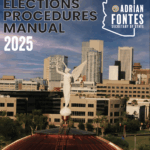 Arizona Rulemaking: In a draft rulebook for the state’s 2026 midterm elections, known as the Election Procedures Manual, released August 1, Secretary of State Adrian Fontes (D) has removed examples of what constitutes illegal voter intimidation. He also deleted a paragraph that said the secretary of state could finalize the state’s election results without a particular county’s results, if that county’s officials missed the state deadline to finalize them. According to Votebeat, the inclusion of those provisions in the previous edition of the manual, released in 2023 ahead of the 2024 elections, drew Republican lawsuits alleging that Fontes had exceeded his authority, and courts ruled against him. Fontes said that he has to follow court orders and that he believes the new version will still protect voters and the integrity of elections. “We’re trying to walk the line between some of the crazy rulings that we’ve seen coming out of the court that seem to protect the First Amendment rights of people who would scream at voters in line, and those First Amendment rights of voters to peaceably assemble, with this new approach,” Fontes said. Fontes’ draft manual includes some changes that voting rights groups have requested for years, such as detailing the rights of voters who don’t speak English well, and of incarcerated residents. Fontes is also using this manual to try to help election officials avoid problems that have come up in recent elections, such as ballot printing errors.
Arizona Rulemaking: In a draft rulebook for the state’s 2026 midterm elections, known as the Election Procedures Manual, released August 1, Secretary of State Adrian Fontes (D) has removed examples of what constitutes illegal voter intimidation. He also deleted a paragraph that said the secretary of state could finalize the state’s election results without a particular county’s results, if that county’s officials missed the state deadline to finalize them. According to Votebeat, the inclusion of those provisions in the previous edition of the manual, released in 2023 ahead of the 2024 elections, drew Republican lawsuits alleging that Fontes had exceeded his authority, and courts ruled against him. Fontes said that he has to follow court orders and that he believes the new version will still protect voters and the integrity of elections. “We’re trying to walk the line between some of the crazy rulings that we’ve seen coming out of the court that seem to protect the First Amendment rights of people who would scream at voters in line, and those First Amendment rights of voters to peaceably assemble, with this new approach,” Fontes said. Fontes’ draft manual includes some changes that voting rights groups have requested for years, such as detailing the rights of voters who don’t speak English well, and of incarcerated residents. Fontes is also using this manual to try to help election officials avoid problems that have come up in recent elections, such as ballot printing errors.
 New Hampshire: Gov. Kelly Ayotte signed election legislation into law last week including: bipartisan legislation to require that all cities and towns provide accessible voting machines at local elections — not just those with state and federal candidates as well as a bill that would include more documentation requirements for absentee voters. Senate Bill 218 requires that absentee voters submit documents indicating citizenship, age, domicile, and identity when they fill in the affidavit allowing them to register to vote. House Bill 67 requires the provision of accessible voting machines in all New Hampshire elections. The new law addresses a longstanding discrepancy. Under federal law, New Hampshire’s Secretary of State’s Office must own and operate those accessible machines, which allow voters with vision impairments and other disabilities to use a keyboard and audio cues to fill in and print out a ballot. But while federal law requires that those machines be available in all elections with federal candidates, it does not require the same for elections that are fully local, such as town meetings, annual school meetings, municipal elections, or special elections for the state House and Senate. Accordingly, for years, the Secretary of State’s Office did not supply cities and towns the machines for local elections, and most towns did not have them. This month’s law requires that all towns provide machines and also requires that the Secretary of State’s Office enter into agreements with all cities and towns in order to provide those machines.
New Hampshire: Gov. Kelly Ayotte signed election legislation into law last week including: bipartisan legislation to require that all cities and towns provide accessible voting machines at local elections — not just those with state and federal candidates as well as a bill that would include more documentation requirements for absentee voters. Senate Bill 218 requires that absentee voters submit documents indicating citizenship, age, domicile, and identity when they fill in the affidavit allowing them to register to vote. House Bill 67 requires the provision of accessible voting machines in all New Hampshire elections. The new law addresses a longstanding discrepancy. Under federal law, New Hampshire’s Secretary of State’s Office must own and operate those accessible machines, which allow voters with vision impairments and other disabilities to use a keyboard and audio cues to fill in and print out a ballot. But while federal law requires that those machines be available in all elections with federal candidates, it does not require the same for elections that are fully local, such as town meetings, annual school meetings, municipal elections, or special elections for the state House and Senate. Accordingly, for years, the Secretary of State’s Office did not supply cities and towns the machines for local elections, and most towns did not have them. This month’s law requires that all towns provide machines and also requires that the Secretary of State’s Office enter into agreements with all cities and towns in order to provide those machines.
Legal Updates
 Alabama: Houston County Circuit Judge Maurice J. “John-John” Steensland nixed an effort to stall municipal elections in Dothan set on August 5. KSG Ministries filed a legal action late August 4 seeking an injunction that would block the vote, claiming authorities denied inmates their right to cast ballots. “Numerous individuals incarcerated in state and county custody are legal residents of Dothan, Alabama, and remain fully eligible to vote under Alabama law,” the lawsuit alleged. The suit, filed by KSG leader Pastor Kenneth Glasgow, claimed that lockup officials denied those inmates access to absentee ballot applications. Glasgow claimed that the lockups have failed to provide a policy allowing inmates not convicted of crimes involving moral turpitude to vote in this week’s elections that include races for mayor, commissioners, and city school board. Steensland refused to issue an order delaying the elections. He set an August 28 hearing to hear from those on both sides of the issue that potentially could affect a runoff next month.
Alabama: Houston County Circuit Judge Maurice J. “John-John” Steensland nixed an effort to stall municipal elections in Dothan set on August 5. KSG Ministries filed a legal action late August 4 seeking an injunction that would block the vote, claiming authorities denied inmates their right to cast ballots. “Numerous individuals incarcerated in state and county custody are legal residents of Dothan, Alabama, and remain fully eligible to vote under Alabama law,” the lawsuit alleged. The suit, filed by KSG leader Pastor Kenneth Glasgow, claimed that lockup officials denied those inmates access to absentee ballot applications. Glasgow claimed that the lockups have failed to provide a policy allowing inmates not convicted of crimes involving moral turpitude to vote in this week’s elections that include races for mayor, commissioners, and city school board. Steensland refused to issue an order delaying the elections. He set an August 28 hearing to hear from those on both sides of the issue that potentially could affect a runoff next month.
 Arizona: Attorney General Kris Mayes is asking a judge to toss a Republican Party bid to void a 2005 Arizona law that extended the right to vote in federal elections to the children of Arizona residents living overseas. The state party and Republican National Committee say the law violates the Arizona constitution, which requires people to have lived here to vote. The federal Uniformed and Overseas Citizens Absentee Voting Act specifically allows Arizonans who are overseas to keep that residency status for purposes of voting by mail. That includes those in the military as well as U.S. citizens who are living outside the country. Mayes is arguing those children of Arizona residents born overseas never had the opportunity to establish residency elsewhere.
Arizona: Attorney General Kris Mayes is asking a judge to toss a Republican Party bid to void a 2005 Arizona law that extended the right to vote in federal elections to the children of Arizona residents living overseas. The state party and Republican National Committee say the law violates the Arizona constitution, which requires people to have lived here to vote. The federal Uniformed and Overseas Citizens Absentee Voting Act specifically allows Arizonans who are overseas to keep that residency status for purposes of voting by mail. That includes those in the military as well as U.S. citizens who are living outside the country. Mayes is arguing those children of Arizona residents born overseas never had the opportunity to establish residency elsewhere.
 Arkansas: Deborah Smith, 57, of North Little Rock, and a former Pulaski County Clerk employee has been charged with a felony in connection with voter registration tampering last year. Smith surrendered to authorities July 31 after investigators with Attorney General Tim Griffin’s Election Integrity Unit obtained a warrant for her arrest. The State Board of Election Commissioners this spring referred a complaint it received from Pulaski County election commissioners about a possible election integrity violation. The state board asked the attorney general’s office and the county prosecuting attorney to investigate the switching of 132 voter registrations from North Little Rock to Maumelle ahead of the 2024 general election. “We determined during our investigation that Smith deliberately switched the voter registrations while employed at the clerk’s office. She is charged with one count of violation of voter eligibility, a Class D felony,” Griffin’s press release said.
Arkansas: Deborah Smith, 57, of North Little Rock, and a former Pulaski County Clerk employee has been charged with a felony in connection with voter registration tampering last year. Smith surrendered to authorities July 31 after investigators with Attorney General Tim Griffin’s Election Integrity Unit obtained a warrant for her arrest. The State Board of Election Commissioners this spring referred a complaint it received from Pulaski County election commissioners about a possible election integrity violation. The state board asked the attorney general’s office and the county prosecuting attorney to investigate the switching of 132 voter registrations from North Little Rock to Maumelle ahead of the 2024 general election. “We determined during our investigation that Smith deliberately switched the voter registrations while employed at the clerk’s office. She is charged with one count of violation of voter eligibility, a Class D felony,” Griffin’s press release said.
 California: Senior U.S. District Judge John Mendez knocked down a California law requiring large social media companies to remove deceptive content from their platforms, saying federal law preempts the state. Social media giants like X Corp. challenged Assembly Bill 2655, which requires certain platforms to remove “materially deceptive content” about political candidates, elections officials and elected officers. They argued the federal Communications Decency Act gives service providers like social media platforms immunity from content posted by a third party. Mendez said from the bench that he didn’t need to rule on First Amendment and constitutional arguments, instead relying solely on federal preemption. However, his ruling only applies to qualifying parties in the suit — X Corp. and Rumble. “No parts of this statute are severable because the whole statute is preempted,” Mendez said. “No parts of A.B. 2655 can be salvaged.” The law — called the Defending Democracy from Deepfake Deception Act of 2024 — sought to stop the spread of election-related deepfakes. Its author had called such deepfakes dangerous tools for those waging disinformation campaigns.
California: Senior U.S. District Judge John Mendez knocked down a California law requiring large social media companies to remove deceptive content from their platforms, saying federal law preempts the state. Social media giants like X Corp. challenged Assembly Bill 2655, which requires certain platforms to remove “materially deceptive content” about political candidates, elections officials and elected officers. They argued the federal Communications Decency Act gives service providers like social media platforms immunity from content posted by a third party. Mendez said from the bench that he didn’t need to rule on First Amendment and constitutional arguments, instead relying solely on federal preemption. However, his ruling only applies to qualifying parties in the suit — X Corp. and Rumble. “No parts of this statute are severable because the whole statute is preempted,” Mendez said. “No parts of A.B. 2655 can be salvaged.” The law — called the Defending Democracy from Deepfake Deception Act of 2024 — sought to stop the spread of election-related deepfakes. Its author had called such deepfakes dangerous tools for those waging disinformation campaigns.
 Colorado: U.S. District Court Senior Judge William J. Martinez ordered Joe Altman, a Douglas County-based conservative podcaster to pay over $90,000 in fees and sanctions for refusing to cooperate with a lawsuit against him. Oltmann, host of the Conservative Daily podcast, has widely claimed that Denver-based election equipment maker Dominion Voting Systems colluded to rig the 2020 election and give former President Joe Biden the win. Both the company and a former employee directly accused by Oltmann have filed numerous defamation lawsuits over the false claims. Martinez ordered Oltmann to pay $37,000 for fleeing the courthouse during a deposition last year and cover $53,757 for plaintiff Eric Coomer’s litigation costs related to Oltmann’s non-compliance. Coomer is the former director of product security and strategy for Denver-based Dominion Voting Systems.
Colorado: U.S. District Court Senior Judge William J. Martinez ordered Joe Altman, a Douglas County-based conservative podcaster to pay over $90,000 in fees and sanctions for refusing to cooperate with a lawsuit against him. Oltmann, host of the Conservative Daily podcast, has widely claimed that Denver-based election equipment maker Dominion Voting Systems colluded to rig the 2020 election and give former President Joe Biden the win. Both the company and a former employee directly accused by Oltmann have filed numerous defamation lawsuits over the false claims. Martinez ordered Oltmann to pay $37,000 for fleeing the courthouse during a deposition last year and cover $53,757 for plaintiff Eric Coomer’s litigation costs related to Oltmann’s non-compliance. Coomer is the former director of product security and strategy for Denver-based Dominion Voting Systems.
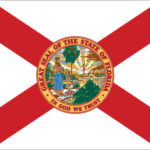 Florida: A Florida appeals court has dealt a blow to Miami officials’ controversial plan to delay city elections until 2026, ruling that the ordinance extending elected officials’ terms was unconstitutional and must be struck down. In a sharply worded 27-page decision, the 3rd District Court of Appeal affirmed a lower court’s finding that the city violated both its charter and the Miami-Dade County Home Rule Charter when it voted in June to postpone the November 2025 mayoral and Commission elections. The three-judge panel concluded the city cannot override its charter without a voter referendum. “(Miami) may not enact an ordinance which effectively amends its Charter without submission of the issue to the will and vote of its constituents by referendum,” the court wrote, declaring the ordinance “unconstitutional.” In its defense of the ordinance, City Attorney George Wysong cited state laws that allow municipalities to shift election dates by ordinance and referred to a previous court ruling in which a court upheld a similar date change in North Miami. But the court rejected that argument, pointing to Miami-Dade’s home rule protections, which require voter approval for any changes to municipal election schedules or term lengths.
Florida: A Florida appeals court has dealt a blow to Miami officials’ controversial plan to delay city elections until 2026, ruling that the ordinance extending elected officials’ terms was unconstitutional and must be struck down. In a sharply worded 27-page decision, the 3rd District Court of Appeal affirmed a lower court’s finding that the city violated both its charter and the Miami-Dade County Home Rule Charter when it voted in June to postpone the November 2025 mayoral and Commission elections. The three-judge panel concluded the city cannot override its charter without a voter referendum. “(Miami) may not enact an ordinance which effectively amends its Charter without submission of the issue to the will and vote of its constituents by referendum,” the court wrote, declaring the ordinance “unconstitutional.” In its defense of the ordinance, City Attorney George Wysong cited state laws that allow municipalities to shift election dates by ordinance and referred to a previous court ruling in which a court upheld a similar date change in North Miami. But the court rejected that argument, pointing to Miami-Dade’s home rule protections, which require voter approval for any changes to municipal election schedules or term lengths.
Backers of proposed constitutional amendments and voting-rights groups are appealing after a federal district judge last month refused to block parts of a new Florida law that placed additional restrictions on the state’s ballot-initiative process. The League of Women Voters of Florida, the League of United Latin American Citizens and two individual plaintiffs filed a notice August 1 that was a first step in appealing to the 11th U.S. Circuit Court of Appeals. The Florida Decides Healthcare and FloridaRighttoCleanWater.org political committees, which are trying to put proposals on the 2026 ballot, and individual plaintiffs filed similar notices July 25. The notices are something of a counter to an appeal filed July 11 by Secretary of State Cord Byrd and Attorney James Uthmeier, the defendants in the lawsuit. Byrd and Uthmeier want the Atlanta-based appeals court to overturn a decision by U.S. District Judge Mark Walker that blocked one part of the law.
Neil Joseph Gillespie, 69, who tried to run for mayor in the upcoming city of Ocala election but was denied because of a residency issue and because officials said he failed to get enough valid petition signatures has filed a federal lawsuit against Marion County Supervisor of Elections Wesley Wilcox. Gillespie, representing himself in this civil action, filed the complaint in the U.S. District Court for the Middle District of Florida. Gillespie seeks $1 million in damages plus legal fees, costs and “other relief this Court deems necessary in the interest of justice.” Contacted by a Star-Banner reporter, Wilcox declined comment, saying he wants to wait until he has completely read the paperwork.
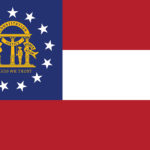 Georgia: Senior Superior Court Judge David Emerson has ruled that the Fulton County Board of Commissioners must appoint election critics nominated by the Fulton County Republican Party to the county election board. Emerson said there is nothing in the law that supports the idea that commissioners can veto eligible nominees. “The Board shall appoint the two members as nominated by the county executive committee chairperson,” wrote Emerson. The decision comes after the Democratic-controlled Fulton Board of Commissioners rejected the two GOP nominees in a party-line vote in May. The Georgia Republican Party sued the commission, arguing the commission is legally obligated to accept the party’s nominations. Jason Frazier, one of two GOP appointees, has lodged thousands of voter eligibility challenges in Fulton. And the other party nominee, Julie Adams, an incumbent election board member, voted against certifying last year’s primary election. Fulton Commissioner Marvin Arrington, who voted against the appointments of Adams and Frazier to the elections board in May, criticized the judge’s ruling. “This ruling essentially eliminates our discretion as elected commissioners, treating us more like record-keepers than decision-makers,” he said.
Georgia: Senior Superior Court Judge David Emerson has ruled that the Fulton County Board of Commissioners must appoint election critics nominated by the Fulton County Republican Party to the county election board. Emerson said there is nothing in the law that supports the idea that commissioners can veto eligible nominees. “The Board shall appoint the two members as nominated by the county executive committee chairperson,” wrote Emerson. The decision comes after the Democratic-controlled Fulton Board of Commissioners rejected the two GOP nominees in a party-line vote in May. The Georgia Republican Party sued the commission, arguing the commission is legally obligated to accept the party’s nominations. Jason Frazier, one of two GOP appointees, has lodged thousands of voter eligibility challenges in Fulton. And the other party nominee, Julie Adams, an incumbent election board member, voted against certifying last year’s primary election. Fulton Commissioner Marvin Arrington, who voted against the appointments of Adams and Frazier to the elections board in May, criticized the judge’s ruling. “This ruling essentially eliminates our discretion as elected commissioners, treating us more like record-keepers than decision-makers,” he said.
 Idaho: Two individuals in Ada County are facing criminal charges related to illegal voting, authorities announced. One person is accused of voting as a non-citizen, while the other allegedly voted while still on felony probation. These arrests are part of Idaho’s comprehensive voter roll review, initiated following a 2024 executive order aimed at ensuring only eligible citizens participate in elections. The review, spearheaded by the Secretary of State’s office, involved cross-referencing voter data with federal and state records. Officials confirmed that no voting machines or tallies were compromised during the process, and additional arrests are anticipated.
Idaho: Two individuals in Ada County are facing criminal charges related to illegal voting, authorities announced. One person is accused of voting as a non-citizen, while the other allegedly voted while still on felony probation. These arrests are part of Idaho’s comprehensive voter roll review, initiated following a 2024 executive order aimed at ensuring only eligible citizens participate in elections. The review, spearheaded by the Secretary of State’s office, involved cross-referencing voter data with federal and state records. Officials confirmed that no voting machines or tallies were compromised during the process, and additional arrests are anticipated.
 Louisiana: The U.S. Supreme Court has expanded the scope of a Louisiana redistricting case that could weaken key provisions of the landmark Voting Rights Act. In a brief order released August 1, the court reframed the appeal in Callais v. Louisiana, a lawsuit that non-Black voters filed against the state over the creation of a second majority Black district for the state in the U.S. House. The justices intend to look at whether a state violates the U.S. Constitution when it seeks to remedy a violation of the Voting Rights Act. In the order, the court asked parties to the case to answer “Whether the State’s intentional creation of a second majority-minority congressional district violates the Fourteenth or Fifteenth Amendments to the U.S. Constitution.” The 14th Amendment, in part, covers representation in Congress, and the 15th Amendment prevents citizens from being denied the right to vote based on their race. If the justices determine Louisiana violated the constitution with its latest congressional map, it could undermine the Voting Rights Act. The legislation was approved in 1965 to bolster the protections granted in the 14th and 15th Amendments. It has been amended five times since then to strengthen its provisions, though voting rights advocates note federal court rulings over the past decade have chipped away at the law.
Louisiana: The U.S. Supreme Court has expanded the scope of a Louisiana redistricting case that could weaken key provisions of the landmark Voting Rights Act. In a brief order released August 1, the court reframed the appeal in Callais v. Louisiana, a lawsuit that non-Black voters filed against the state over the creation of a second majority Black district for the state in the U.S. House. The justices intend to look at whether a state violates the U.S. Constitution when it seeks to remedy a violation of the Voting Rights Act. In the order, the court asked parties to the case to answer “Whether the State’s intentional creation of a second majority-minority congressional district violates the Fourteenth or Fifteenth Amendments to the U.S. Constitution.” The 14th Amendment, in part, covers representation in Congress, and the 15th Amendment prevents citizens from being denied the right to vote based on their race. If the justices determine Louisiana violated the constitution with its latest congressional map, it could undermine the Voting Rights Act. The legislation was approved in 1965 to bolster the protections granted in the 14th and 15th Amendments. It has been amended five times since then to strengthen its provisions, though voting rights advocates note federal court rulings over the past decade have chipped away at the law.
 Maryland: An attorney representing the Maryland State Board of Elections is asking a Circuit Court judge to dismiss a lawsuit challenging the legality of state-funded primary elections that exclude independent voters. Five unaffiliated Maryland voters filed suit in May and asked a judge to declare that restrictions on primary elections are a violation of the state constitution. Elections officials, in a response filed Wednesday afternoon, asked for the lawsuit to be dismissed citing a lack of standing and a “failure to state a claim upon which relief can be granted.” In his response on behalf of the board, Daniel Kobrin, an assistant attorney general, wrote that a challenge based “solely as taxpayers” is insufficient to establish standing for such a challenge. The motion filed by Korbin also asks the judge to declare that the five voters have no right to challenge the restrictions on primary elections because of previous court decisions. Kobrin noted two decisions by the Supreme Court of Maryland that said “voters have no right under the state constitution to vote in the primary elections of a party to which they do not belong.” In another case, the U.S. Supreme Court upheld closed primaries and a political party’s First Amendment right “not to associate” and therefore cannot be required to allow unaffiliated voters to participate, according to the motion filed by the board’s attorney Kobrin, in his motion, writes that “the merits of the unaffiliated voters’ challenge have already been rejected.”
Maryland: An attorney representing the Maryland State Board of Elections is asking a Circuit Court judge to dismiss a lawsuit challenging the legality of state-funded primary elections that exclude independent voters. Five unaffiliated Maryland voters filed suit in May and asked a judge to declare that restrictions on primary elections are a violation of the state constitution. Elections officials, in a response filed Wednesday afternoon, asked for the lawsuit to be dismissed citing a lack of standing and a “failure to state a claim upon which relief can be granted.” In his response on behalf of the board, Daniel Kobrin, an assistant attorney general, wrote that a challenge based “solely as taxpayers” is insufficient to establish standing for such a challenge. The motion filed by Korbin also asks the judge to declare that the five voters have no right to challenge the restrictions on primary elections because of previous court decisions. Kobrin noted two decisions by the Supreme Court of Maryland that said “voters have no right under the state constitution to vote in the primary elections of a party to which they do not belong.” In another case, the U.S. Supreme Court upheld closed primaries and a political party’s First Amendment right “not to associate” and therefore cannot be required to allow unaffiliated voters to participate, according to the motion filed by the board’s attorney Kobrin, in his motion, writes that “the merits of the unaffiliated voters’ challenge have already been rejected.”
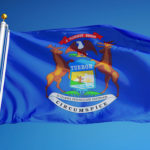 Michigan: The state’s primary court for suing the government properly dismissed a Republican attempt to disenfranchise the family members of overseas and military voters, the Michigan Court of Appeals ruled Wednesday. In a per curiam unpublished opinion, the state’s appellate court affirmed a previous decision of the Michigan Court of Claims in a lawsuit filed by the Michigan Republican Party and the Republican National Committee. The opinion was signed by Judge Philip Mariani, Judge Allie Greenleaf Maldonado and Judge Adrienne Young. The lawsuit said Secretary of State Jocelyn Benson and Bureau of Elections Director Jonathan Brater issued election guidance that granted voter status to people who didn’t live in Michigan, targeting overseas and military voters’ spouses and adult children. The Court of Claims ruled against that argument in October 2024, and said it was an 11th hour Hail Mary attempt by the MIGOP and the RNC to disenfranchise the state’s voters before the upcoming November 2024 general election. It was dismissed by Judge Sima Patel, an appointee of Gov. Gretchen Whitmer. Patel denied Benson’s request for sanctions, however. The parties filed in the Court of Appeals, which on Wednesday affirmed the lower court’s decision.
Michigan: The state’s primary court for suing the government properly dismissed a Republican attempt to disenfranchise the family members of overseas and military voters, the Michigan Court of Appeals ruled Wednesday. In a per curiam unpublished opinion, the state’s appellate court affirmed a previous decision of the Michigan Court of Claims in a lawsuit filed by the Michigan Republican Party and the Republican National Committee. The opinion was signed by Judge Philip Mariani, Judge Allie Greenleaf Maldonado and Judge Adrienne Young. The lawsuit said Secretary of State Jocelyn Benson and Bureau of Elections Director Jonathan Brater issued election guidance that granted voter status to people who didn’t live in Michigan, targeting overseas and military voters’ spouses and adult children. The Court of Claims ruled against that argument in October 2024, and said it was an 11th hour Hail Mary attempt by the MIGOP and the RNC to disenfranchise the state’s voters before the upcoming November 2024 general election. It was dismissed by Judge Sima Patel, an appointee of Gov. Gretchen Whitmer. Patel denied Benson’s request for sanctions, however. The parties filed in the Court of Appeals, which on Wednesday affirmed the lower court’s decision.
Jacob Wohl, 27 and John Burkman, 59, both of Virginia, pleaded no contest to intimidating Michigan voters in 2020, Attorney General Dana Nessel announced. Burkman and Wohl are accused of orchestrating a series of robocalls aimed at suppressing Black voters in Detroit during the 2020 election. The men discouraged Detroiters from voting in the general election by creating robocalls in late August of 2020. The calls went out to nearly 12,000 residents with a Detroit zip code, officials say. “After five years, I’m glad this case has finally reached a resolution,” Nessel said. “Deceptive and racially targeted suppression schemes will not be tolerated in Michigan. My office will continue to pursue and prosecute voter intimidation, no matter how long it takes, to ensure that Michiganders can exercise their right to vote free from fear and deception.” The two men were charged in 2020 and bound over for trial. The duo attempted to quash the charges, but the Court of Appeals ruled the state’s conduct was constitutional. The two pled no contest to: One count of election law – bribing/intimidating voters, a 5-year felony; One count of conspiracy to commit an election law violation, a 5-year felony; One count of using a computer to commit the crime of election law – intimidating voters, a 7-year felony; and Using a computer to commit the crime of conspiracy, a 7-year felony.
 Missouri: In an August 4 ruling Jackson County Circuit Court Judge Marty Wayne Seaton scheduled a recall vote for Jackson County Executive Frank White Jr. for next month, after the county election board said the initial Aug. 26 date demanded by petitioners was not “feasible.” Seaton heard arguments Friday in a pair of court actions: Election officials asked to move the recall vote to the general election date in November, while a group of concerned citizens pushed to keep their earlier date. The board said the Nov. 4 date was the “earliest available date that fully complies with Missouri election law,” according to court documents. In an emailed statement, White thanked the court for moving the date back, but criticized the idea of holding a recall at all, which he said would be costly. “If this effort is ultimately allowed to proceed, it will be a $5 million mistake — one I believe Jackson County voters will not forget. I will not stop fighting this reckless misuse of public funds and power,” he wrote. “This is a distraction from the work we should be doing.
Missouri: In an August 4 ruling Jackson County Circuit Court Judge Marty Wayne Seaton scheduled a recall vote for Jackson County Executive Frank White Jr. for next month, after the county election board said the initial Aug. 26 date demanded by petitioners was not “feasible.” Seaton heard arguments Friday in a pair of court actions: Election officials asked to move the recall vote to the general election date in November, while a group of concerned citizens pushed to keep their earlier date. The board said the Nov. 4 date was the “earliest available date that fully complies with Missouri election law,” according to court documents. In an emailed statement, White thanked the court for moving the date back, but criticized the idea of holding a recall at all, which he said would be costly. “If this effort is ultimately allowed to proceed, it will be a $5 million mistake — one I believe Jackson County voters will not forget. I will not stop fighting this reckless misuse of public funds and power,” he wrote. “This is a distraction from the work we should be doing.
 Nevada: Washoe County is filing to dismiss a lawsuit brought by former Registrar of Voters Cari-Ann Burgess. In their motion to dismiss, the county alleges that Burgess was grossly incompetent and accused her of violating federal and state law requiring deactivations for the county’s voter list. They also accused Burgess of issuing a defective sample ballot, attempting to execute an illegal plan for “unofficial” drop boxes at designated churches, fraudulently charging overtime for non-mandatory social events, and that she demonstrated extremely deficient election law knowledge. The county also says Burgess refused to acknowledge employee contributions, made inappropriate remarks, and told another employee she was going to punch her in the throat, which the filing says she dismissed as a joke. Burgess was terminated in February. Burgess subsequently filed the suit against the county, claiming disability discrimination, retaliation, emotional distress, fraud, defamation and conspiracy.
Nevada: Washoe County is filing to dismiss a lawsuit brought by former Registrar of Voters Cari-Ann Burgess. In their motion to dismiss, the county alleges that Burgess was grossly incompetent and accused her of violating federal and state law requiring deactivations for the county’s voter list. They also accused Burgess of issuing a defective sample ballot, attempting to execute an illegal plan for “unofficial” drop boxes at designated churches, fraudulently charging overtime for non-mandatory social events, and that she demonstrated extremely deficient election law knowledge. The county also says Burgess refused to acknowledge employee contributions, made inappropriate remarks, and told another employee she was going to punch her in the throat, which the filing says she dismissed as a joke. Burgess was terminated in February. Burgess subsequently filed the suit against the county, claiming disability discrimination, retaliation, emotional distress, fraud, defamation and conspiracy.
 Oregon: U.S. District Judge Michael J. McShane has found that only the Constitution Party of Oregon, not the conservative activist group Judicial Watch or its members, has authority to challenge Oregon’s handling of voter rolls in a pending lawsuit. McShane called Judicial Watch’s allegations “speculative” and found they don’t allege that voter fraud is occurring or that any inactive voter received a ballot or cast one in error. In contrast, he found the Constitution Party had adequately raised a real harm, contending that the state’s “outdated” voter registration lists have made it harder for the party to track whether its members’ registrations are active to maintain its standing as a minor political party able to nominate candidates. “The Constitution Party has plausibly alleged that outdated or inaccurate voter lists impair a core function of that organization,”McShane wrote in a 23-page opinion. He kept alive the party’s claim that Oregon has failed to remove ineligible voters from its voter registration rolls.
Oregon: U.S. District Judge Michael J. McShane has found that only the Constitution Party of Oregon, not the conservative activist group Judicial Watch or its members, has authority to challenge Oregon’s handling of voter rolls in a pending lawsuit. McShane called Judicial Watch’s allegations “speculative” and found they don’t allege that voter fraud is occurring or that any inactive voter received a ballot or cast one in error. In contrast, he found the Constitution Party had adequately raised a real harm, contending that the state’s “outdated” voter registration lists have made it harder for the party to track whether its members’ registrations are active to maintain its standing as a minor political party able to nominate candidates. “The Constitution Party has plausibly alleged that outdated or inaccurate voter lists impair a core function of that organization,”McShane wrote in a 23-page opinion. He kept alive the party’s claim that Oregon has failed to remove ineligible voters from its voter registration rolls.
 Texas: A three-judge panel of the 5th Circuit Court of Appeals has ruled that Texas may enforce a state law that invalidates mail-in ballots submitted without a voter’s state identification number or partial Social Security number. The panel ruled unanimously that the requirement the Texas Legislature enacted in 2021 as part of an election-integrity bill known as SB1 did not violate a federal law preventing states from imposing voting requirements “not material” to the validity of ballots. In a brusque, nine-page opinion, Judge James Ho twice said the appeals panel had “little difficulty” concluding that Texas’ law was valid. “The number-matching requirements are obviously designed to confirm that every mail-in voter is who he claims he is,” Ho wrote for the panel. “And that is plainly material to determining whether an individual is qualified to vote.” The judges said that merely requiring applications to list the voter’s name and address was insufficient to address security concerns. “That information is easily available to anyone who simply requests it,” wrote Ho, a Trump appointee. “As a result, any person can request and receive that information about a registered voter, use that information to apply for a mail-in ballot, and then cast the ballot, with minimal risk of detection.”
Texas: A three-judge panel of the 5th Circuit Court of Appeals has ruled that Texas may enforce a state law that invalidates mail-in ballots submitted without a voter’s state identification number or partial Social Security number. The panel ruled unanimously that the requirement the Texas Legislature enacted in 2021 as part of an election-integrity bill known as SB1 did not violate a federal law preventing states from imposing voting requirements “not material” to the validity of ballots. In a brusque, nine-page opinion, Judge James Ho twice said the appeals panel had “little difficulty” concluding that Texas’ law was valid. “The number-matching requirements are obviously designed to confirm that every mail-in voter is who he claims he is,” Ho wrote for the panel. “And that is plainly material to determining whether an individual is qualified to vote.” The judges said that merely requiring applications to list the voter’s name and address was insufficient to address security concerns. “That information is easily available to anyone who simply requests it,” wrote Ho, a Trump appointee. “As a result, any person can request and receive that information about a registered voter, use that information to apply for a mail-in ballot, and then cast the ballot, with minimal risk of detection.”
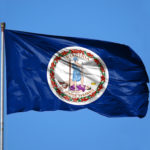 Virginia: The Virginia Court of Appeals determined that the Virginia NAACP’s yearslong challenge to Gov. Glenn Youngkin over access to records concerning his administration’s changes to voting rights restorations can move forward. Because a previous ruling by a Richmond judge that sided with the governor never addressed the attorneys fees that had been part of NAACP’s lawsuit, the appellate court has decided the case is not closed. “We dismiss the premature appeal without prejudice and remand the matter to the trial court to consider the attorney fee issue,” the court’s judges wrote in a filing. The Virginia Conference of the NAACP had originally filed a Freedom of Information Act request to the governor’s office seeking further details about how it handles restoration of voting rights to people with felony convictions who have completed their sentences. In Virginia, people with these convictions permanently lose their right to vote unless a governor pardons them or they petition a governor to restore the right. Previous governors — both Republican and Democratic — had worked to streamline the process and make it automatic upon completion of a prison sentence. The process quietly reverted to a petition-based one under the Youngkin administration, with fewer petitions granted than previous governors and unclear criteria for what would yield a “yes” or “no” from his administration. The lack of transparency in the restoration process is why Virginia’s NAACP filed its original records request.
Virginia: The Virginia Court of Appeals determined that the Virginia NAACP’s yearslong challenge to Gov. Glenn Youngkin over access to records concerning his administration’s changes to voting rights restorations can move forward. Because a previous ruling by a Richmond judge that sided with the governor never addressed the attorneys fees that had been part of NAACP’s lawsuit, the appellate court has decided the case is not closed. “We dismiss the premature appeal without prejudice and remand the matter to the trial court to consider the attorney fee issue,” the court’s judges wrote in a filing. The Virginia Conference of the NAACP had originally filed a Freedom of Information Act request to the governor’s office seeking further details about how it handles restoration of voting rights to people with felony convictions who have completed their sentences. In Virginia, people with these convictions permanently lose their right to vote unless a governor pardons them or they petition a governor to restore the right. Previous governors — both Republican and Democratic — had worked to streamline the process and make it automatic upon completion of a prison sentence. The process quietly reverted to a petition-based one under the Youngkin administration, with fewer petitions granted than previous governors and unclear criteria for what would yield a “yes” or “no” from his administration. The lack of transparency in the restoration process is why Virginia’s NAACP filed its original records request.
Opinions This Week
National Opinions: U.S. Election Assistance Commission | Redistricting | Undermining elections | Native American voting rights | Poll workers | List maintenance | Voting Rights Act | Ballot access
Alabama: Election security funding
Arkansas: Poll watchers
California: Voter ID
Florida: Voting Rights Act
Georgia: State Board of Elections
Illinois: Ranked choice voting | Department of Justice
Maine: Department of Justice
Michigan: Early voting | Nonvoters, II
Nevada: Election system
New York: Ranked choice voting | Voting reforms
North Carolina: Democracy
Ohio: Voting Rights Act
South Carolina: Election security
Texas: Election reform
Utah: Department of Justice
West Virginia: Poll workers
Upcoming Events
EAC Technical Guidelines Development Committee Virtual Working Sessions: The U.S. Election Assistance Commission (EAC) will hold two Technical Guidelines Development Committee (TGDC) Virtual Working Sessions on July 30 and August 8. During these sessions, the TGDC members will discuss the proposed changes to the Voluntary Voting System Guidelines (VVSG) 2.1. Staff from the EAC and the National Institute of Standards and Technology (NIST) will be available for technical questions and support. The working sessions will be live streamed on the agency’s YouTube Channel. These working sessions will build on the discussion from the July 2 meeting of the TGDC. A recording of this meeting is available on the EAC’s YouTube Channel. The TGDC is composed of 14 members jointly appointed by the EAC and the NIST. The committee, which the director of NIST chairs, was established to assist the EAC in developing VVSG in accordance with the Help America Vote Act of 2002. Information about how to watch the livestreams will be made available on the event pages for each working session: August 8, 2025 Working Session #2 When: Aug. 8. Where: Online
Oregon Association of County Clerks Annual Conference: When: August 11-14. Where: Klamath Falls.
Mail Ballots: Faster Verification, Better Processes and Safer Tabulation: How can mail ballots be verified more quickly and accurately? What practices can help prevent avoidable ballot rejections? How can ballot tabulation be made safer (and quieter) for election workers? Please join The Elections Group for “Mail Ballots: Faster Verification, Better Processes and Safer Tabulation,” the latest webinar in this summer’s Books & Ballots series. During the webinar, researchers from the Engineering for Democracy Institute, King County (WA), US Digital Response, the University of Southern California, and the University of Pennsylvania will explore these questions and more as they present and discuss how their recent work can help election officials administer mail ballots. This webinar is part of the Books and Ballots series, a partnership with the Center for Election Innovation and Research, The Elections Group, and Arizona State University’s Mechanics of Democracy Laboratory. When: August 12, 12pm Eastern. Where: Online.
National Poll Worker Recruitment Day: On August 12, 2025, the U.S. Election Assistance Commission (EAC) is hosting National Poll Worker Recruitment Day to encourage people to sign up to be election workers. This national day of action was established by the EAC in 2020 to raise awareness of the importance of poll workers, inspire greater civic engagement, and support state and local election officials’ recruitment efforts across the country. In 2024, state election offices in 31 states and Washington DC joined local elected offices, private companies, nonprofit organizations, and others in this effort. About 772,000 poll workers served their communities in the 2024 general election, according to the 2024 Election Administration and Voting Survey Report. When: August 12. Where: Everywhere.
Michigan Association of County Clerks 117th Annual Summer Conference: When: August 17-20. Where: Mt. Pleasant.
WMCA Annual Conference: When: August 19-22. Where: LaCrosse.
Election Center Annual Conference: The Election Center Annual Conference will be held in Salt Lake City. The conference will run August 20-22 and CERA courses will be offered August 23 and 24. The CERA courses offered will be: Course 5 (Ethics); Course 6 (Communications & Public Relations); and Two renewal courses to be announced. When: August 20 to 24. Where: Salt Lake City.
Protecting the Election: AI and Governance Conference at WashU: Join us for this two-day in-person research and practitioner conference at WashU on October 16-17, 2025, to discuss research regarding AI and governance and how this applies to U.S. elections. Research topics include how chatbots can be used to engage with voters, how social media influences voters, what the electorate knew (or did not know) about the candidates and issues during recent elections, misinformation in elections, rhetoric about election integrity, and AI strategies for the administration of elections. We will also hear from practitioners during the conferences about their experiences with and needs for AI in recent elections and their intentions for future use of AI in elections. When: Oct. 16-17. Where: St. Louis.
Call For Papers and Proposals
Election Science Conference-within-a-Conference: The 2026 Election Science Conference-within-a-Conference (CwC), co-organized by Lisa Bryant (California State University, Fresno) and Joshua Ferrer (American University), is now open for proposal submissions. The CwC will be part of the Southern Political Science Association (SPSA) Annual Meeting, which will be held January 14-17, 2026 in New Orleans, Louisiana. The submission deadline is August 15, 2025. We hope to elicit broad participation from those focused on Election Law, Election Administration, Election Sciences, State and Local Politics, Voting and Voting Rights, Public Opinion, and Public Administration circles. For this CwC, we invite submissions in all areas of election sciences. We encourage submissions from all scholars, including practitioners, researchers in advocacy organizations, those from underrepresented backgrounds, graduate students, and early career scholars. Proposals can focus on the American electoral context, as well as the international or comparative electoral environments and systems. Possible topics include, but are not limited to: public opinion about elections, election administration and procedures, voter confidence, threats to election officials (and their implications), voter disenfranchisement, voting methods and voter experiences, racial/ethnic disparities in access to registration and voting, changes in election laws and election reform, elite rhetoric in how election results are processed and reported, voter turnout and behavior. The CwC will include approximately 10-12 panels of 4-5 papers each, with all panels likely occurring over 1.5 days for ease of attendance (exact dates and times to be announced later). Panel proposals or roundtable proposals are also welcome. If you are part of an organized panel, all papers should submit individually and indicate they are part of a panel. Per the conference organizers, please DO NOT SUBMIT TO THE SPSA CONFERENCE WEBSITE IF YOU ARE SUBMITTING TO THE CWC. This results in papers being double booked at the conference. Please don’t hesitate to reach out to us with any questions at: lbryant@csufresno.edu (Lisa Bryant) or jferrer2017@gmail.com (Joshua Ferrer).
Job Postings This Week
electionlineWeekly publishes election administration job postings each week as a free service to our readers. To have your job listed in the newsletter, please send a copy of the job description, including a web link to mmoretti@electionline.org. Job postings must be received by 5pm on Wednesday in order to appear in the Thursday newsletter. Listings will run for three weeks or till the deadline listed in the posting.
Administrative Specialist, King County, Washington – The Department of Elections is searching for energetic and resourceful professionals who like to “get stuff done”. The Administrative Specialist II positions in the Voter Services Department combines an exciting, fast-paced environment with the opportunity to cultivate talents and apply a variety of skills. The ideal candidate will have a desire to help ensure the democratic process through public service. They will thrive in an innovative environment and will not hesitate to roll up both sleeves, work hard, have fun, and get the job done. Job Duties: Provide excellent customer service to internal and external customers in person, via telephone, and via e-mail by processing voter registrations, communicating election program information and explaining election procedures, guidelines and regulations. Provide backup support for translation and/or interpreting and proof election-related documents and web materials from English to Chinese (traditional text). This includes but is not limited to voter registration information, letters, and other correspondence, notice of elections, ballot titles, voters’ pamphlet information, candidate statements, ballot measures, etc. to limited English speaking (LES) voters. Perform production-level computer work which includes accurate data entry, retrieving and editing records. Organize and coordinate work activities and assist with providing training and one-on-one instruction to diverse staff. Set up records and file documents in both electronic and paper formats. Review documents for proper format, accuracy, completion, eligibility, and other legal guidelines. Audit work group data entry activities to ensure performance quality and efficiency of work. Utilize spreadsheets, word documents and reports to track and document performance data. Research and resolve questions from staff, citizens and stakeholders. Document and improve work processes, procedures and instructions. Salary: $27.03 – $34.40 Hourly. Application: For the complete job listing and to apply, click here.
Assistant Registrar of Voters, Santa Clara County, California– Under general direction, the Assistant Registrar of Voters supports the planning, organization, and oversight of the County Registrar of Voters Department. This executive leadership position reports directly to the Registrar of Voters and plays a key role in administering and managing departmental operations. The department is responsible for voter registration, the conduct of elections, and related electoral services. The Assistant Registrar of Voters helps ensure that all activities are carried out efficiently, accurately, and in compliance with applicable laws and regulations. This position may assume the responsibility of the Department in the absence of the Registrar of Voters. Salary: $194,184.52 – $249,180.63. Application: For the complete job listing and to apply, click here.
Community Engagement Coordinator, North Charleston, South Carolina– Partner with the Community Engagement Manager to identify and expand non-partisan community relationships. Cultivate connections with local businesses and civic organizations to boost visibility and support. Solicit and analyze community feedback to enhance outreach strategies. Create brochures, flyers, presentations, and digital content to educate the public about elections and voting procedures.Collaborate with the Marketing and Communications Manager to maintain clear, consistent, and timely messaging across platforms. Manage and update the outreach section of the agency’s website. Deliver presentations and training during outreach events. Plan and coordinate mid-scale public events such as National Voter Registration Day and poll worker appreciation initiatives. Represent BVRE at outreach events, tabling opportunities, and community meetings. Track outreach activity and report on engagement metrics and outcomes. Support special projects including the “I Voted” sticker contest, Adopt a Polling Location, and poll worker recruitment. Research best practices to enhance and expand outreach programming. Assist in maintaining a centralized repository of outreach materials and resources. Salary: $50,440 – $66,060. Application: For the complete job listing and to apply, click here.
Election Analyst, Charleston County, South Carolina– Are you a detail-oriented professional with a passion for public service and a knack for technology? Join us as an Election Analyst and play a vital role in ensuring the security, efficiency, and accuracy of elections in our community. At the Board of Voter Registration and Elections, we are not just managing elections—we’re shaping the foundation of democracy. As an award-winning office known for our commitment to excellence and innovation, we invite you to be part of a team that is redefining what it means to serve the public. Our mission is to daily serve the Charleston County voting constituency with Vigilance, Objectivity, and Transparency in a manner that promotes due diligence Excellence in all aspects of Elections Management. Why Join Us: 1. Trusted Stewards of Democracy: We lead the way in secure, accessible, and transparent elections, earning statewide and national recognition for our performance. 2. Frontline Impact: As an Election Analyst, your work will directly impact how voters experience democracy—from the reliability of equipment to the confidence in results. 3.Culture of Innovation: We’re constantly improving election systems, training programs, and precinct operations to ensure our voters get the best experience possible. Salary: $45,052 – $58,988. Application: For the complete job listing and to apply, click here.
Election Program Supervisor, Clark County, Nevada– The Clark County Election Department is seeking qualified candidates for the Election Program Supervisor positions in the Mail Ballot and Administration divisions. These positions assist in supervising permanent and temporary staff, reviewing and evaluating the work of others, and directing specific operational functions including budgeting and hiring of staff. The Election Program Supervisor coordinates with vendors and community partners to ensure a successful election process. These positions require mandatory overtime during various periods in the election cycle. The overtime can include weekends and may be with little to no notice. Salary: $30.38 – $44.84 Hourly. Deadline: August 19. Application: For the complete job listing and to apply, click here.
Election Specialist, Franklin County, North Carolina– An employee in this class is responsible for assisting the Director of Elections in all phases of the elections process, including setting up polling places, training seasonal staff, working with registrars and judges, processing voter registrations, filing of candidates for office, recording minutes, and other such duties in accordance with North Carolina Election laws, the US Justice Department, and the County Board of Elections. The employee performs clerical functions a significant percentage of time. Work is performed in compliance with all applicable laws and policies established by the State, local Board of Elections, and the County. Work is reviewed by the Director of Elections, and by the Board of Elections in the absence of the Director. Salary: $51,061 – $53,614. Deadline: Aug. 14. Application: For the complete job listing and to apply, click here.
Election Specialist, Candidate Services, Palm Beach County, Florida– This position is responsible for the management and execution of services provided to candidates, political committees, electioneering communication organizations, political parties, community development districts, and special taxing districts. This includes establishing and maintaining an organized system for managing the required forms and records associated with filing and qualifying for office, candidate petitions, campaign finance reporting, financial disclosures, initiative petitions, and other related activities. Candidate Services staff must be organized and personable with a great attitude, be able to work well in a team environment, and meet deadlines under pressure. Excellent work ethic, including consistent performance, integrity, reliability, and attendance, is a must. Must be detail-oriented, be able to handle simultaneous projects, and be a self-starter. Salary: $21.63 – $24.04. Application: For the complete job listing and to apply, click here.
Elections Administrative Coordinator, Buncombe County, North Carolina– The Buncombe County Elections Services Department is hiring for an Administrative Coordinator. This person will be the Clerk to the Board of Elections. This position manages the reception desk with excellent customer services skills in all types of communication, supports the Elections Director in administrative duties, and makes travel & training arrangements for the office and Board when needed, including coordinating office wide professional development and team activities, among other duties as described. Purpose of the position: The primary purpose of this position is to perform complex administrative functions requiring interpretation and judgement in organizing and coordinating business activities for a department or program. Salary: $58,450 – $72,977. Deadline: Aug. 8. Application: For the complete job listing and to apply, click here.
Elections Filing Manager, Arizona Secretary of State’s Office– The Elections Filing Manager oversees the Division’s filing operations and works with other Elections Manager(s) and the Deputy State Election Director to ensure the Division’s compliance with state and federal laws and regulations relating to initiative, referenda, recalls, new party and candidate nomination petition processing, E-Qual, petition circulator registration, officeholder financial disclosures, campaign finance and lobbying filings. The EFM manages Division staff and interns, and communicates frequently with counties, cities/towns, officeholders, candidates, and the regulated community. Manages the day-to-day operations of the Elections Filing Team. Responsible for managing staff, projects, and operations and ensuring compliance related to initiative/referenda/recall/new party/candidate nomination filings and processing, petition circulator registration, official events such as the official canvass and Electoral College, campaign finance, E-Qual, officeholder financial disclosures and lobbying. Responsible for ensuring related handbooks and forms are created/updated timely and accurately. Responsible for the filing internship program. Act as project manager for election related IT systems including but not limited to Beacon, Candidate Portal, E-Qual, EMS, Circulator Portal, Lobbyist Portal and the Petition Management Services System. Oversee the development of all election related IT systems, provide guidance to IT regarding the business requirement documents for election related IT systems and work with staff to provide specifications/guidance for IT development. Ensures legal compliance and functionality and facilitate on-going positive user experience. Provide research and confirmation of the statutory requirements of filings, conduct QA tests on the election related IT systems and software. Assists with customer service needs on topics such as E-Qual, campaign finance, petition filings and financial disclosures. Helps create and maintain accurate content for the website in areas specific to their role. Application: For the complete job listing and to apply, click here.
IT Assistant Manager, Palm Beach County, Florida– The Assistant IT Manager plays a supportive role in the smooth operation of the IT department, ensuring that both the technical infrastructure and the team are aligned with the organization’s goals. This position involves collaborating closely with the Election Technology Director to oversee the implementation of technology solutions that meet the needs of the organization. The Assistant IT Manager helps maintain an efficient and effective IT environment. Oversee daily operations of the IT department, including help desk operations and performance, troubleshooting issues, and ensuring efficient workflow. Hold department meetings and provide weekly performance summary. Manage IT projects under the direction of the Election Technology Director, ensuring timely completion, budget requirements, and organizational needs. Enforce IT policies and procedures to ensure data security, network access, and system availability. Assist in the management of IT staff by developing skills, coaching, and communicating job expectations. Coordinate vendor renewals, assist with IT budget development, and manage grant applications. Evaluate and assist in maintaining the organization’s disaster recovery and business continuity plans for IT. Assist with IT Public Records requests research and fulfillment. Assist the Election Technology Director in all facets of IT operations. Lead projects and mentor team members. Application: For the complete job listing and to apply, click here.
Organizer, Minnesota– We are looking for a creative and collaborative Organizer to join the Common Cause team in Minnesota. This is a key role supporting our organizing and outreach programs and promoting civic engagement across the state. This is a full-time role reporting to the Executive Director, Minnesota and is based in Minnesota, with a preference for candidates located in Olmsted County or St. Cloud, with an expectation to travel around Minnesota at least 2 days per week, with a maximum of 5 days a calendar week during the legislative session, and peak summer engagement season. This is a termed position, starting on November 1, 2025 and ending October 31, 2027. Salary: $63,860 – $80,340 a year. Application: For the complete job listing and to apply, click here.
Physical Security Specialist, Palm Beach County, Florida– This position is responsible for administration of the physical security programs in a manner consistent with Supervisor of Elections Office policies, procedures, quality standards, and applicable local, state, and federal regulations. These programs include conducting facility security risk assessments, assisting with access control, monitoring alarms and CCTV systems, and providing security related training. Must be organized and personable with a great attitude, be able to work well in a team environment, and meet deadlines under pressure. Excellent work ethic, including consistent performance, integrity, reliability, and attendance, is a must. Candidate must be detail-oriented and understand the importance of security and safety for all. Must be available 24/7 365, be able to handle simultaneous projects, and be a self-starter. Application: For the complete job listing and to apply, click here.
Precinct Manager, Charleston County, South Carolina– Are you driven by a passion for democracy and civic engagement? Join the Board of Voter Registration and Elections as a Precinct Manager and play a critical role in delivering seamless, fair, and accessible elections. Key responsibilities: Poll worker recruitment and management; Polling location management; Liaison and community engagement; Support for election operations on Election Day and early voting; and Team leadership. The Board of Voter Registration and Elections is an award-winning organization dedicated to excellence in electoral processes. Our mission is to daily serve the Charleston County voting constituency with Vigilance, Objectivity, and Transparency in a manner that promotes due diligence Excellence in all aspects of Elections Management. We are committed to continuous improvement, innovative practices, and exceptional service to our community, ensuring every voter’s voice is heard. Salary: $68,140 – $89,252. Application: For the complete job listing and to apply, click here.
Program Manager, Center for Tech and Civic Life– When you think about elections, you might think about popular candidates, “I voted” stickers, and all sorts of paperwork and deadlines. But behind the scenes are thousands of election officials in state and local governments who are working hard to make sure ballots are counted and voices are heard. At a time when election officials are facing unprecedented challenges and scrutiny, they need support in order to administer secure and inclusive elections and build trust among the public. As Program Manager for the Values and Standards for Election Excellence (VSEE), you will support adoption and maintenance of a new set of standards that make clear what high performance looks like in U.S. election administration. This is big, bold work at the forefront of election administration, so an entrepreneurial spirit will help you succeed. You’ll report to an Associate Director in the Government Services department. Application: For the complete job listing and to apply, click here.
Program Manager, Common Cause– We are looking for a collaborative and highly organized Program Manager to join the Common Cause team in California. In this role, you will lead and implement state programmatic efforts, manage relationships with key stakeholders, and coordinate advocacy activities to support our programmatic agenda. You will play a key part in advancing our mission to protect democracy and ensure the fair and equitable representation of all communities. The Money in Politics Program Manager will lead statewide efforts to reduce the undue influence of wealthy donors, corporations, and special interests in California’s political system. The role focuses on advancing policies and coalitions that promote campaign finance reform, strengthen disclosure, and improve public financing of elections at the local and state level. This position is ideal for someone passionate about building a more inclusive democracy, experience in policy advocacy, and skilled in organizing diverse coalitions and stakeholders. This is a full-time role reporting to the Deputy Director of California and based in California, with an expectation to travel around the state at least 8-12 days per quarter. We hope our new Program Manager will start in October. Salary: $82,400 – $97,850 a year. Application: For the complete job listing and to apply, click here.
Senior Director, Legislative Affairs, Common Cause– We are seeking a strategic, experienced, and mission-driven Senior Director, Legislative Affairs to lead our federal legislative advocacy work and our strategic approach to advocacy within our states to strengthen our democracy by holding power accountable. In this role, you will be responsible for developing and executing a dynamic federal lobbying strategy, managing high-level relationships with lawmakers and key partners, and building strategic alignment across Common Cause’s policy pillars and state teams. You will serve as a key thought partner in our cross-department campaigns and media efforts that include federal legislative components. This is a full-time role reporting to the Senior Vice President, Policy & Litigation; this role is based in Washington, DC, with an expectation to work in-person at least two days per week, up to five days per week during peak legislative periods, and travel at least four times per year. We hope our Senior Director, Legislative Affairs will start in November. Salary: $128,750 – $144,200 a year. Application: For the complete job listing and to apply, click here.
Senior Elections Supervisor, Placer County, California– The Placer County Clerk-Recorder-Elections Office has a current vacancy for a Senior Elections Supervisor. The Office is looking for someone with experience in the development, supervision, and administration of elections programs. The ideal candidate will have supervised in an elections office or similar agency that emphasizes cooperation, accountability and transparency and has the ability to communicate effectively with management, staff, other county departments, jurisdictions and the voters of Placer County. To learn more about the Elections Division of the Clerk-Recorder-Elections Office please click here. In addition to the minimum education and experience, the ideal candidate will possess experience and vision in the following areas: State and federal election laws; Voting systems; General operating policies and functions of the California Secretary of State’s Office; Best practices and current trends in successful election administration, community education and outreach programs; Principles and techniques of effective employee supervision and development, training, management practices and public administration. Salary: $69,056.00 – $86,195.20/year. Application: For the complete job listing and to apply, click here.
Voter Registration and Absentee Manager, Charleston County, South Carolina– Are you driven by public service and committed to ensuring the accuracy of voter registration? Join us as the Voter Registration and Absentee Manager and lead a team dedicated to upholding the integrity of our processes. Welcome to the Board of Voter Registration and Elections, where we are not just an agency, but a dynamic force committed to excellence in democracy. As an award-winning organization, we pride ourselves on our relentless pursuit of improvement to better serve the voters in our community. This role is pivotal to ensuring secure, accurate, and accessible voter registration and absentee voting services. Salary: $70,000.00 – $82,000.00 Annually. Application: For the complete job listing and to apply, click here.
Voter Services Clerk, Seminole County, Florida – The Voter Services Clerk serves as the primary customer service representative for the Seminole County Supervisor of Elections Office. This position is responsible for the accurate maintenance and entry of voter registration information, ensuring the integrity and confidentiality of voter data, and providing essential assistance to voters, including answering inquiries and processing voter-related documents. The Clerk will also be involved in various clerical and administrative tasks associated with voter services, ensuring compliance with applicable state and federal election laws. Responsibilities include processing new voter registrations, updates or changes to existing registrations, vote-by-mail ballot requests, and returns, as well as petition verifications and other voter record-related tasks, providing accurate voter registration and election information to the public in person, by phone, or via mail, in accordance with Florida state laws, regulations, and procedures, conducting research to resolve issues related to voter registration records, utilizing sources both within the voter database and external government websites or online resources, ensuring the accuracy and completeness of voter registration records by verifying information, validating signatures on candidate and initiative petitions, maintaining and update street maintenance files to ensure an up-to-date and accurate residential address database for Seminole County. Salary: $17 – $22 Hourly. Application: For the complete job listing and to apply, click here.
Marketplace
electionline provides no guarantees as to the quality of the items being sold and the accuracy of the information provided about the sale items in the Marketplace. Ads are provided directly by sellers and are not verified by electionline. If you have an ad for Marketplace, please email it to: mmoretti@electionline.org